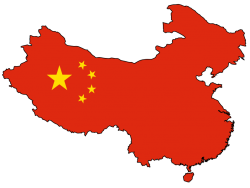by Byron Russell, Head of Ingenta Connect
Ingenta
Publisher Bulletin, spring 2016
Rapidly-growing contact with the publishing industries in China has created exciting new opportunities for western publishers which – despite slowing economic growth – will continue to develop. Chinese publishers are become more proactive in overseas marketing and, gradually, western audiences are becoming more familiar with Chinese authors and media, led by the popularity of cinematic historical blockbusters such as Crouching Tiger, Hidden Dragon.
The numbers behind Chinese publishing are mind-boggling. The industry in China is valued at US$ 8 billion and is the second biggest in the publishing world after the United States. Last year, the Chinese published nearly 450,000 book and journal titles and produced 8.3 billion books. Chinese citizens are avid readers with roughly 78% of people in China reading regularly – and nearly 60% are reading for an hour a day on digital platforms.
In 2014 China bought rights to over 18,000 foreign works and sold the rights for nearly 10,500 titles to international publishing houses.
What does this mean for scholarly publishing? Is there really a massive opportunity out there, waiting to be grabbed? Well, the answer, as usual, is both yes and no. With over 2000 university libraries and approximately 20m undergraduate students (including 380,000 international students in higher education in the PRC) China is a powerful market in terms of sheer size. Piracy – once the bane of any publisher wishing to enter the market – is not as prevalent as it once was, probably because the government is now seeing a two way tide in terms of foreign rights sales. Nevertheless it is notoriously difficult to bring business talks to a satisfactory conclusion, and to achieve contractual terms for rights or sales of books or journals. For those interested in entering this frustratingly complex but potentially vast market, three key points are worth remembering.
Just as the family is seen as the core of Chinese life and relationships, it is impossible to transact meaningful business by phone and mail alone. Chinese business sets great store by personal trust – so if you are serious about doing business in China, be prepared to rack up the air miles.
Due to the complexities of the market and the relationships involved, a strong local sales and distribution partner will make all the difference between success and failure. Ingenta has a joint venture in Beijing, and works closely with China National publications. Our sales arm, PCG, has recently hired its own sales person based in China. Onboarding your own Chinese staff as a bridge between social and business cultures is essential.
And I don’t just mean flights. Achieving successful growth in the PRC takes years, partly because of the need for building those relationships long-term before you can get things done, partly because of the hideously complex bureaucracy, and partly because in terms of scholarly publishing, norms that apply here won’t work over there. Take PPV, for example. It’s a rarity in China, and not because of pricing. Chinese institutions are much more likely to buy a complete collection, so it’s best to focus on that side of the business. Ingenta Connect Collections – either of your own publications, or in partnership with another publisher – can be sold direct to institutions far more successfully than can be individual articles to researchers, as long as you can access local partners to do the selling.